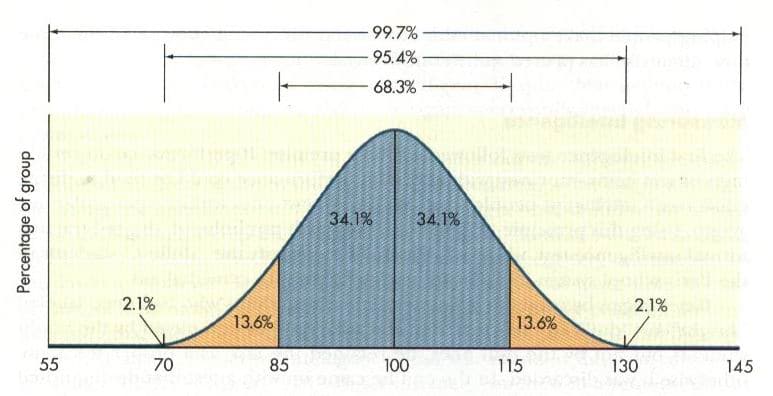The above graph is a bell curve showing a normal distribution of IQ scores. When I describe a student's IQ, I use terms such as Very Superior, Superior, High Average, Average, Low Average, Borderline, and Extremely Low ("Mentally Deficient" has gone out of style). An IQ score of 100 is considered Average. There's a 15 point leeway on either side of 100, getting us to Low Average or High Average. From there, we either work up or down by 15 points to reach the other descriptors.
Kids that are considered Gifted and Talented typically fall at 130 or above (to Very Superior, and beyond!). Students who could be described as mentally retarded are a bit more tricky to pin down. A classification of "Mental Retardation" typically requires an IQ of below 65-70 (varies on what you consult), achievement in reading, writing, and math below 65-70, and delayed adaptive behavior. Adaptive behavior refers to skills needed for independent living, such as feeding and dressing one's self, communicating effectively, and appropriate social skills. There are varying degrees of mental retardation: mild, moderate, severe, and profound. Individuals with moderate, severe, or profound mental retardation are likely to have adaptive behavior too low to live independently.
Fun (yet horrifying) Fact: In the early 1900s, the terms mild, moderate, severe, and profound were not used to describe mental retardation. Instead, moron, imbecile, and idiot were used. Classy.

No comments:
Post a Comment
Note: Only a member of this blog may post a comment.